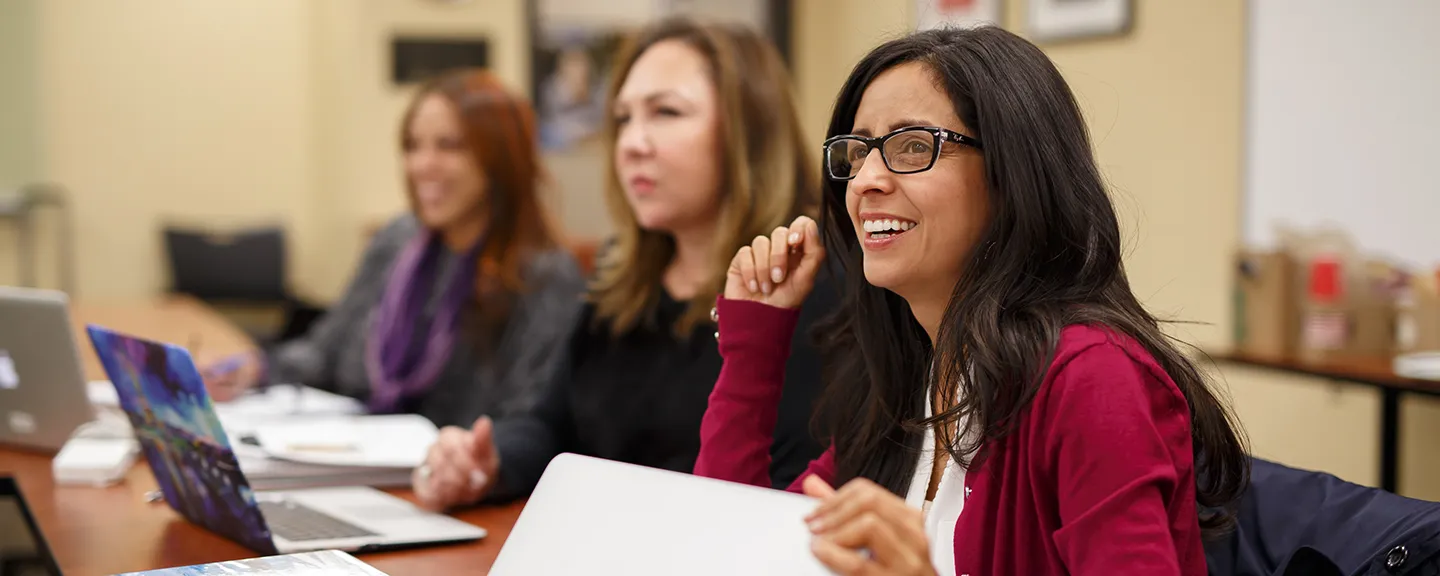- Home
- >
- APU Articles
- >
- News Article
3 Reasons to Pursue a Doctorate in Education
October 01, 2020 | Written By Heather Nelson

Educators across the spectrum pursue a doctorate in education for a variety of reasons, both personal and professional. Knowing some of these reasons can help you determine if you’re ready to take this next step!
Whether you’re looking to expand your knowledge or work your way toward leadership, here are three of the top reasons educators begin their doctoral journey.
1. Fulfilling an Internal Yearning
For most people who work toward a doctoral degree, there’s an internal yearning for what’s next in learning for them.
“A lot of times, educators see it as a personal challenge—that drive to do something more,” explained Greg Plutko, EdD, assistant professor and superintendent-in-residence for Azusa Pacific University’s Department of Educational Leadership and superintendent of the Placentia-Yorba Linda Unified School District. “There comes a time in their career where they ask, ‘What’s really next for me? What challenges me in new ways that will help me to serve others even better?’”
2. Responding to a Desire to Lead
In education, there’s inherent value in being a lifelong learner. And in doctoral programs, there’s also a focus on leading as you learn and enhancing your leadership capabilities.
“Educational leaders are expected to work from a place of experience and expertise as they develop vision to guide their institutions instructionally and organizationally,” said Stacy Kula, PhD, program director for APU’s EdD in Educational Leadership. “Such leaders choose to earn their doctoral degree in order to raise their level of expertise. They also understand that having the doctorate gives them greater credibility as they advance in their careers.”
3. Accessing Career Advancement and Opportunities
Kula explained that most educators in the EdD in Educational Leadership program come with at least five years of experience, whether it be as a classroom teacher, an administrator, or other district office positions. And all are looking to grow professionally.
“Having an earned doctorate is desirable for educational leaders and opens doors for advancement into higher-level administrative positions,” shared Kula. “It does so because it represents a significant personal investment and commitment to pursue one’s highest potential.”
Professionally, the content, skills, and leadership development gained in a doctorate of education program further prepare an educator for career advancement and additional opportunities within a school, district, or beyond.
Meet the Faculty: Calvin Roso, EdD
Earning an EdD at APU
The EdD in Educational Leadership program at Azusa Pacific University offers educators a chance to align their values and goals while pursuing the next step on their educational journey.
“The program and its leaders understand the need for participants to balance their schooling, their job, their spiritual priorities, and their family commitments at various stages of life,” shared Robert Taylor, EdD, assistant professor and superintendent in residence in APU’s Department of Educational Leadership and superintendent of Walnut Valley Unified School District.
Earning an EdD at APU means:
- Dedicating three years to collaboratively working alongside a cohort of fellow students while balancing work and home with the support of peers and instructors
- Spending 60 percent of learning time in face-to-face classes occurring over 16 weekends per year (6 in the fall, 6 in the spring, and 4 in the summer), and 40 percent in an online environment
- Engaging in a dissertation study that is embedded into coursework, allowing candidates to simultaneously complete their coursework, finish their dissertations, and earn their doctorates in three years
In fact, for recent graduating cohorts, the EdD program at APU boasts a 100 percent completion rate within three years of beginning the doctoral journey. In other words, all candidates who complete the EdD coursework at APU also complete their dissertation and earn their doctorate.
This achievement is rooted in the program’s unique design in which students write their dissertation throughout the program at the same time that research skills are taught. Modeled on best practices for student retention and program completion, the approach has served APU students well since it was inaugurated in 2015.
To put the program’s success in broad context, past studies have found that just under 50 percent of all students who begin a doctoral program complete everything but the dissertation, never earning their degree. That’s why APU’s program is designed to support candidate completion.
“Not only will you be supported by your instructors and peers at APU throughout this journey, but your career and life experiences will also make the program even more meaningful and fulfilling,” added Taylor.
Are you ready to take the next step in your education career by earning a doctorate in education from Azusa Pacific University? Learn more about APU’s Educational Leadership program and apply today.